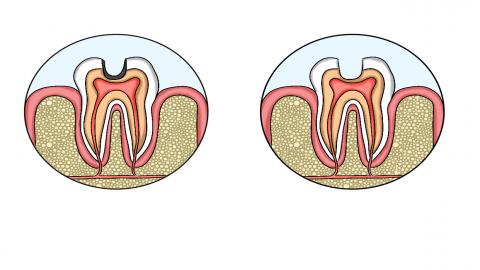Can early-stage tooth decay heal on its own?
Early-stage caries that involve only demineralization of the enamel surface without obvious cavities can be reversed through intervention; however, once a cavity has formed or the lesion has reached the dentin, the damage cannot heal on its own and requires medical treatment. If discomfort occurs, it is recommended to seek timely medical attention at a hospital, clarify the condition, and follow medical advice for treatment to avoid delaying the progression of the disease.

When dental caries are in the early stage of enamel demineralization, there is no obvious defect on the tooth surface—only chalky white spots appear. At this point, if the oral environment is improved promptly, the growth of cariogenic bacteria is reduced, fluoride toothpaste is used consistently for brushing morning and night, and mouth rinsing is done after meals, along with regular use of fluoride mouthwash or professional fluoride varnish applications, fluoride ions can promote enamel remineralization, repair demineralized areas, halt the progression of caries, and even restore the tooth to health. This process typically takes 1–3 months and requires ongoing maintenance of good oral hygiene habits.
If early caries are not treated promptly, the lesion will continue to progress, leading to enamel destruction and visible cavities, or bacterial invasion into the superficial dentin, causing sensitivity to hot and cold stimuli. At this stage, irreversible damage has occurred to the hard tooth structure and cannot be repaired naturally. Dental restorative treatment at a hospital's dental department is required, involving filling the cavity with dental materials to prevent further progression toward the pulp and avoid more serious complications such as pulpitis or apical periodontitis.
In addition, it is important to limit the frequency of sugary food consumption and undergo a dental check-up every six months to detect and manage early caries promptly, thereby reducing treatment complexity.




